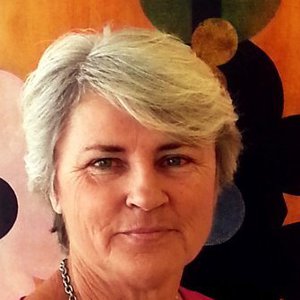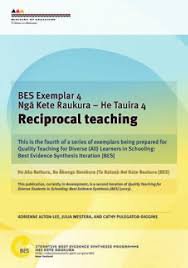
Julia Westera
PhD, Educational Psychologist
RTeach Institute Director
PLD Facilitator ACC135
RTeach Institute Director
PLD Facilitator ACC135
Julia Westera is a PLD facilitator, educational psychologist, teacher and researcher, with extensive experience in early childhood, intermediate and secondary rural and urban schools and their communities.
Julia’s PhD, ‘Reciprocal Teaching as a school-wide inclusive strategy’ as well as her co-authorship of Best Evidence Synthesis – Reciprocal Teaching and more recent research, have earned her both national and international recognition.
Responding to the need for a contemporary, high impact, school-wide inclusive implementation model (Westera, 2013) to reduce inequities and improve outcomes for all ākonga, Julia has designed a modernised version of reciprocal teaching: Reciprocal Teaching 3 Track - RT3T™, based on the latest theoretical and applied research.
Since 2013, Dr Westera and her team have been collaborating with many schools, educators and students in a single-minded effort to build the capacity of kura | schools, Kāhui Ako and clusters of schools at all decile levels in using improvement science to effectively maximise this foundational pedagogy.
When carefully implemented by a skilled, trained teaching team, results show a marked impact on achievement – after just a few weeks, with upward trends continuing, even after holiday and COVID breaks. In essence, this is about improving the likelihood of all our tamariki being successful and actively confident life-long learners.
Here Julia reflects on why she is passionate about reciprocal teaching:
As a school psychologist in West Auckland in the early 1990s I was shocked that there were no Māori and Pacific Island students in the senior assembly. Why were these kids not engaged in the senior school?
My own experience as an immigrant kid in a monocultural Sydney school, was that for years I hardly ever spoke. It made the question of why these kids were also on the fringe one of personal importance.
After a kōrero/talk with teachers and also with students, I went on a search to find an evidence-based pedagogy that could markedly improve more culturally responsive teaching and learning. Professor Dennis Moore introduced me to Reciprocal Teaching, and sent me off to visit a teacher who was being trained into implementing reciprocal teaching in her classroom.
I realised that if reciprocal teaching had been around for me as an immigrant kid, I would have quickly broken out of my frozen silence, and become emotionally connected and confident.
I have been passionate ever since about schools getting this pedagogy right for everyone.
We have known for a long time that when this whole school strategy is well implemented, ākonga and teachers together quickly develop a cohesive foundational learning culture that is crucial for confident student agency, inclusion, well-being and lifelong learning.
Feature articles:
Best Evidence Synthesis – Reciprocal Teaching, Alton-Lee, Westera & Pulegatoa-Diggins, 2012
Reciprocal Teaching: An Implementation Case, Westera, 2014. This research was requested by Dr Adrienne Alton-Lee on behalf of the Iterative Best Evidence Synthesis Programme │ Hei Kete Raukura. Wellington: Ministry of Education. The purpose of this case study was to identify factors that would be critical for success when implementing reciprocal teaching as an effective school-wide strategy in New Zealand.
Reciprocal Teaching – Towards high impact results: Inferential questioning and other key elements. Presentation of RT3T™ at EARLI Conference, Cyprus 2015. At this leading European conference, Dr Westera’s paper was ranked in the top 15% in terms of relevance.
Generating Seismic Shifts with Reciprocal Teaching, Education Gazette Publication October 2016
Q&A: Reciprocal Teaching: An update on a core teaching and learning strategy, Education Gazette Publication November 2015
Q&A: A schoolwide core teaching and learning strategy, Education Gazette Publication April 2014
You can read more about Julia Westera in the Education Services PLD facilitator database.
